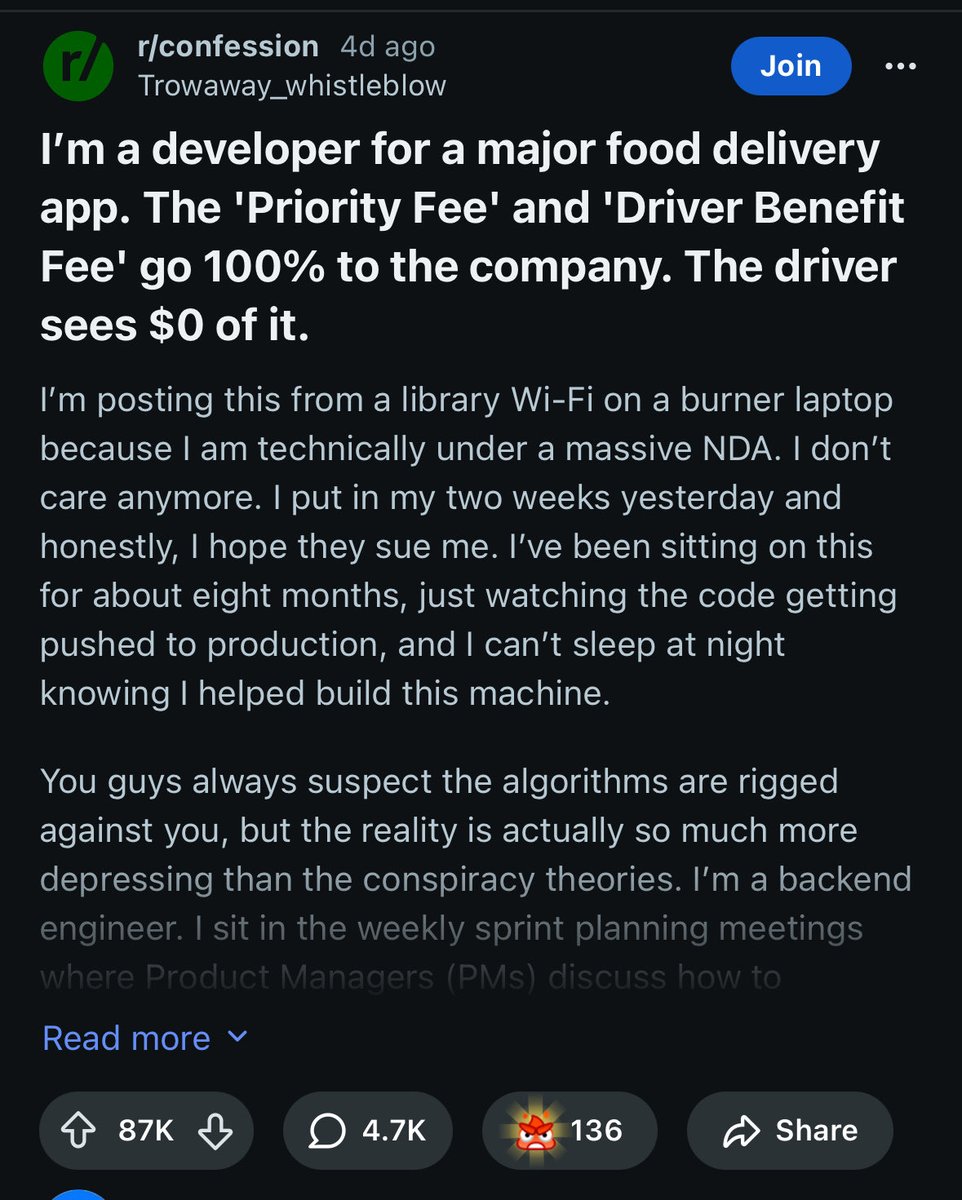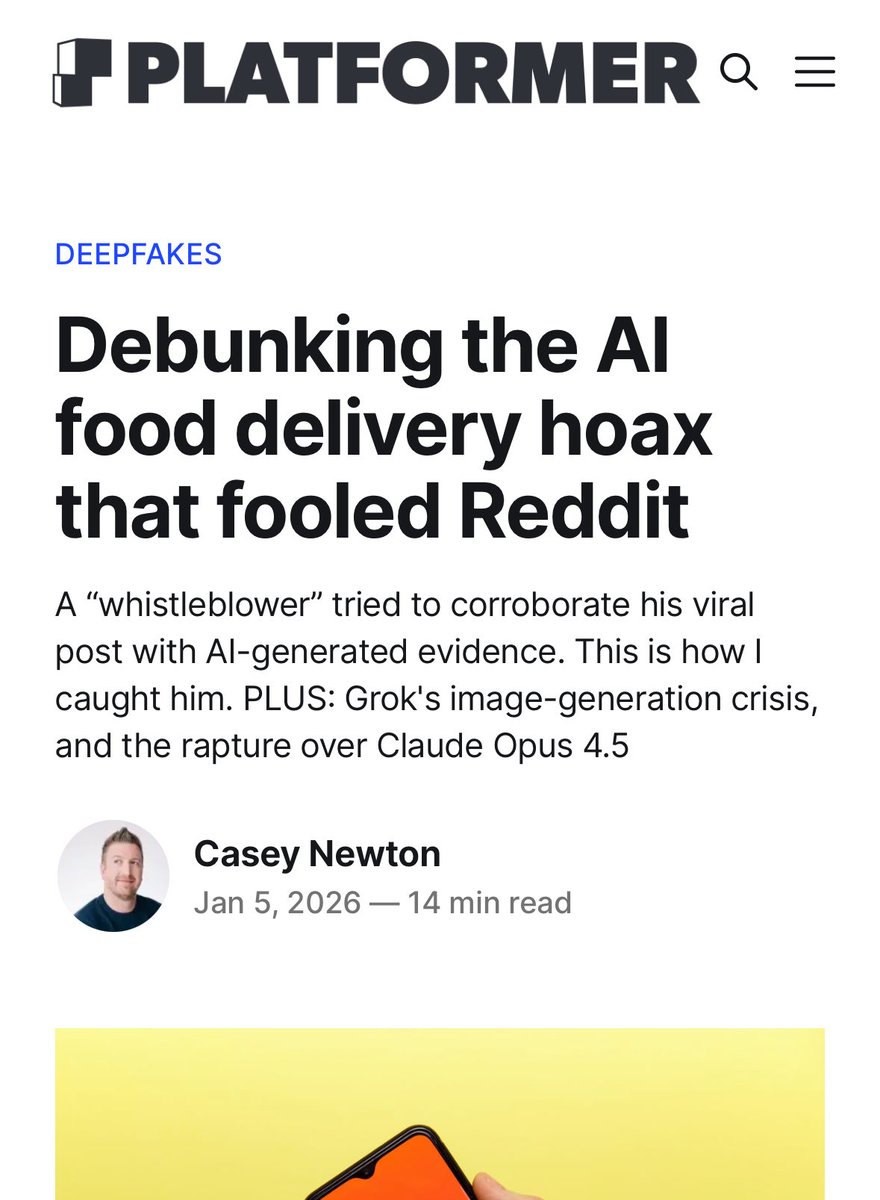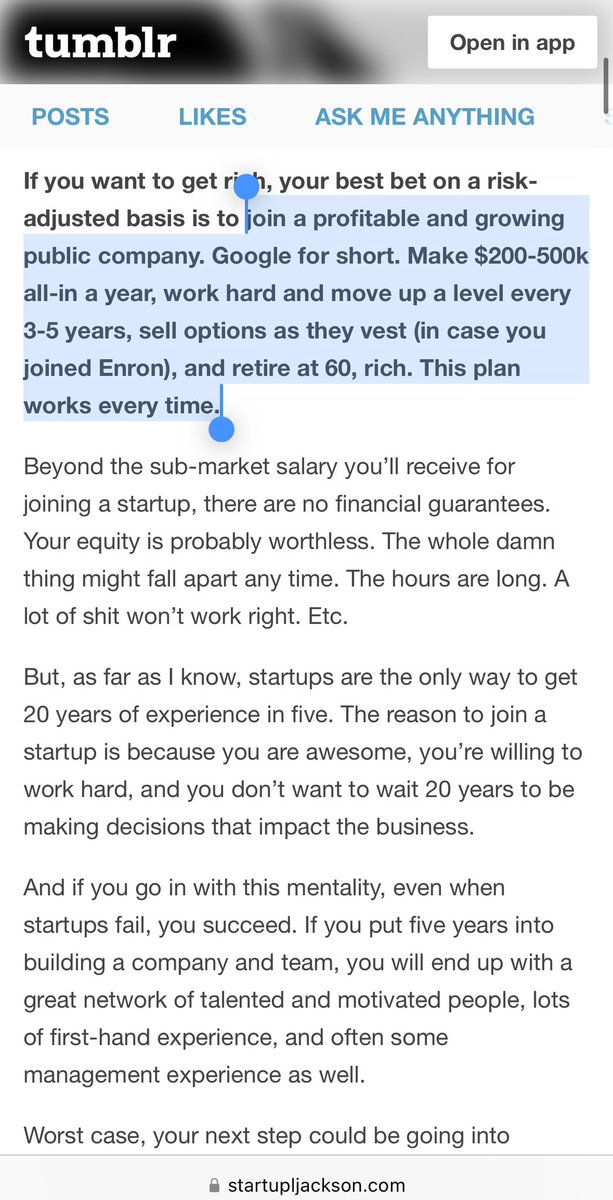
Writing @Pragmatic_Eng, the #1 software engineering newsletter on Substack. Author of @EngGuidebook. Formerly Uber & Skype.
36 subscribers
How to get URL link on X (Twitter) App


 The Reddit thread: reddit.com/r/confession/c…
The Reddit thread: reddit.com/r/confession/c…

 On one end, it was super casual. On the other, it was really dense.
On one end, it was super casual. On the other, it was really dense.


https://twitter.com/anthropicai/status/1938630310985601131And frankly I’m getting tired of Anthropic being loud about how their AI will lead to mass unemployment, and while claiming to be a responsible lab to develop AI.
https://twitter.com/anthropicai/status/1938630312734474248


 Full blog - you should *absolutely* read it
Full blog - you should *absolutely* read it 
 It's b/c you mis-read the email (which is so easy to do!)
It's b/c you mis-read the email (which is so easy to do!)
https://twitter.com/rhyssullivan/status/1919609657523310785In case you missed it: it was Microsoft who voluntarily cannibalized their very very profitable Visual Studio business and released VS Code for free. And made it trivial to fork. VS Code + forks probably account for 80%+ of the global dev market in usage

 Data source: @Pragmatic_Eng
Data source: @Pragmatic_Eng 
